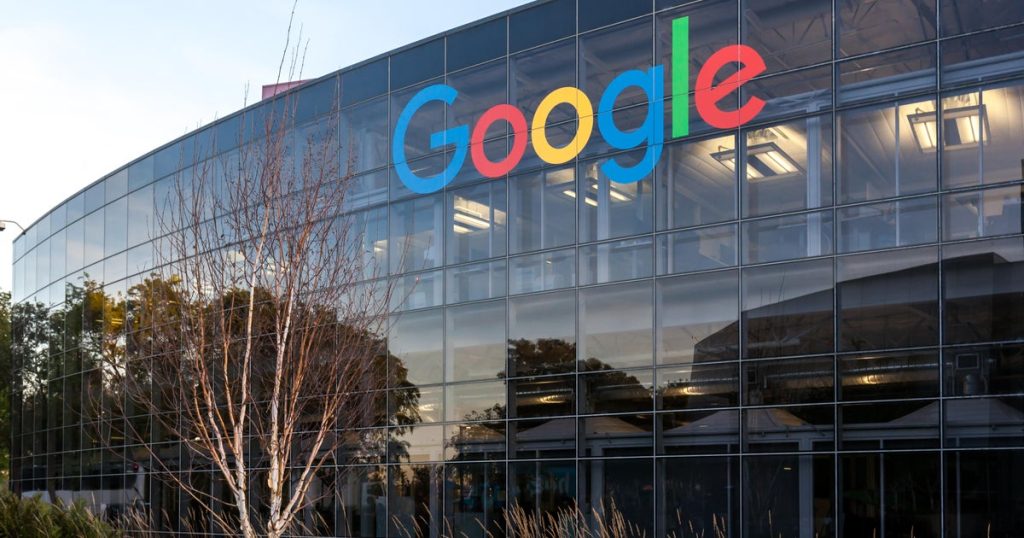A hearing kicked off today in Washington, D.C., that could determine whether Google remains in its current form, or if it could face penalties such as selling off its popular Chrome web browser.
The so-called remedy hearing is the consequence of a court ruling last August that found Google is operating a monopoly and uses its dominant market position to crush rivals and put a lid on innovation.
The U.S. Department of Justice is arguing that Google should be forced to divest its Chrome browser, which the agency describes as “one of the largest entry points that exists for searches.” By selling Chrome, rivals could have a chance to compete for search queries, the government argues, but such a change would drastically reshape Google’s parent, Alphabet, a tech giant with a $1.8 trillion market valuation.
“Google can compete, but they simply don’t want to compete on a level playing field,” Justice Department attorney David Dahlquist said on Monday during his opening before the court. “Google is now fearful of competing against rivals who will only get stronger with the proposed remedies in place.”
The hearing comes just days after Google was branded an abusive monopolist in a separate case that ruled the tech giant had illegally exploited some of its online marketing technology to boost profits. The more recent case focused on Google’s online advertising business, which has been built around its search engine and other widely used products, including Chrome and YouTube.
Here’s what to know about the current remedy hearing.
What is the Google hearing about?
U.S. District Judge Amit Mehta ruled in August that Google has illegally exploited its dominance to squash competition and stifle innovation.
The current hearing is aimed at addressing potential remedies, with Mehta expected to issue a decision by August 2025, according to a November research note from Goldman Sachs analyst Eric Sheridan.
“We are not here to relitigate the case, we are here to ask the court to fix the harm from Google’s unlawful conduct,” said Assistant Attorney General Gail Slater in a Monday statement before the hearing’s opening arguments.
What does the Justice Department want?
The Justice Department is pushing for several changes, Dahlquist said on Monday during the trial.
They include:
- Forcing Google to divest the Chrome browser;
- Requiring Google to share some data to help new entrants overcome barriers to entry;
- Syndicating search and advertising data that would allow rivals to use Google’s search results to improve their quality.
Some of the changes sought by the DOJ would last for years, with Sheridan noting that the requirements would “include Google enabling ongoing access to its search index, making available user and ads search data (for up to 10 years), syndicating its search text ads data for up to 1 year and syndicating its search results, ranking signals & query understanding information (for queries originated in the U.S.) for up to 10 years.”
What would happen to Chrome?
Jon Sallet, representing a group of states that joined the Justice Department in the case, said in his opening statements that his first priority is the divestiture of Chrome.
Chrome is a “massively attractive asset” with over 4.1 billion global users, he added. “This kind of asset doesn’t come up very often.”
Divestitures can happen in a number of ways, such as a spinoff or sale of a business unit. In some cases, the existing shareholders of a company — in this case, Google parent Alphabet — receive new shares in the divested business.
AT&T may be one of the best-known companies to have been broken apart after being accused of operating a monopoly. The phone giant split into several smaller companies as part of a 1982 settlement with the U.S. government, leading to the creation of several smaller regional phone operators, such as Bell South and Bell Atlantic.
Splitting off Chrome would likely deliver a financial hit to Google’s revenue, Goldman’s Sheridan added. It would not only limit Google Search revenue, but would also restrict search query volume and access to user data, he noted.
What is Google’s response to the DOJ?
Google attacked the government’s proposed antitrust remedies, with its lead attorney, John Schmidtlein, calling them “fundamentally flawed” and arguing that they would unfairly penalize the company for its innovation.
“Google earned its market position through hard work and ingenuity,” Schmidtlein said.
A divestiture of Chrome would be “far from simple,” he said, noting that the remedy would go beyond the browser to include the open-source Chromium project Google created and has supported for years.
“The decree demands not only Chrome but also everything critical to Chromium’s functionality,” Schmidtlein said. “What does that even mean? They’re leaving it up to a technical committee, but there’s no clarity on what constitutes necessary assets.”
He criticized the process, saying it lacks a clear path for evaluating potential buyers, and warned that Google would effectively be barred from the browser market for 10 years. “I can’t think of an antitrust remedy that approaches this,” he added.


